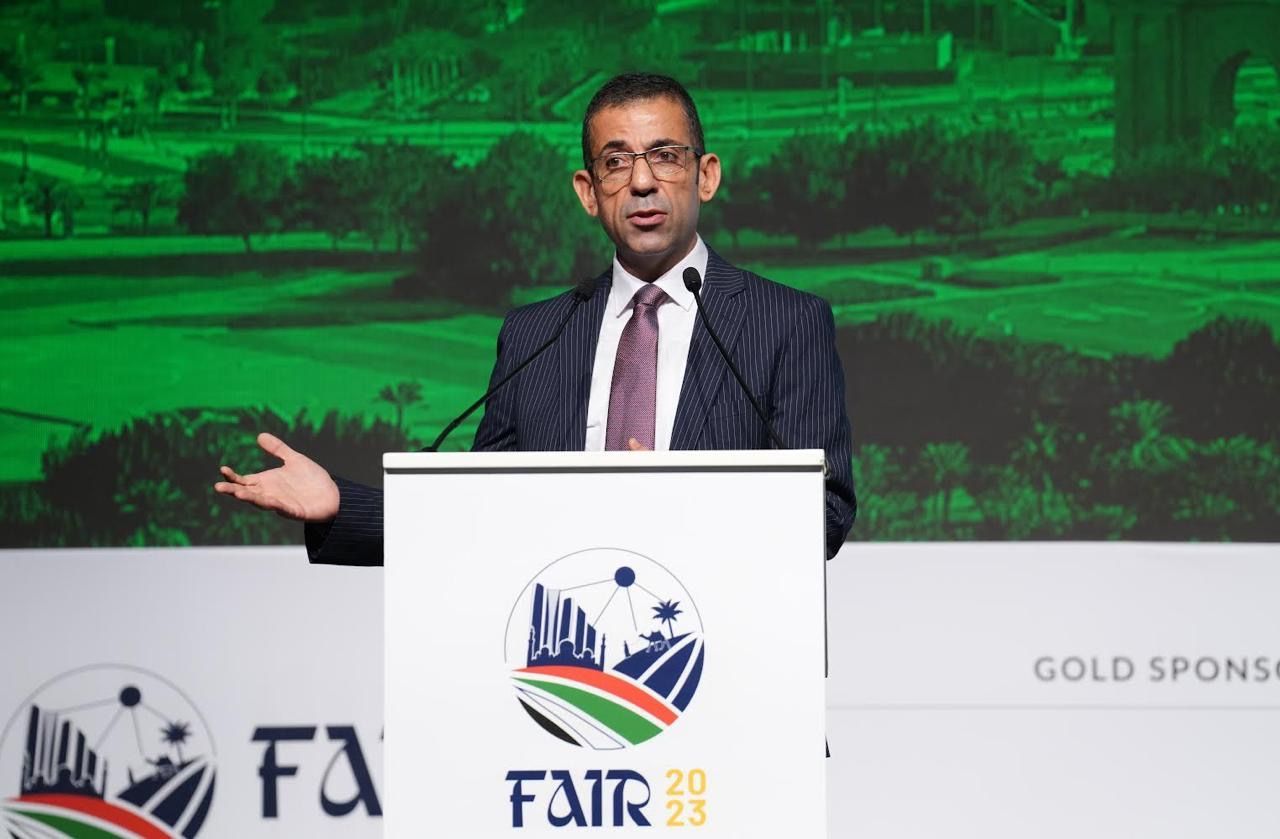Inspiring Female Leaders: Aleli Arcilla
Aleli Arcilla is the President and General Manager at Reckitt Benckiser Health Philippines, in this role she acts as the head steward for RB Health Philippines’ business, overlooking brands like Enfa, Lactum, Strepsils, Gaviscon and Durex.

Can you tell us about your career progression into your current role?
I started off in the banking industry but soon realised it wasn’t for me, so I joined Mead Johnson and transitioned to market operations. In that role, I was responsible for sales and trade marketing, which nobody really knew how to do, therefore my pledge to be the best I can be really
helped propel my career as I later handled retail channels in a national
capacity. Afterwards, I moved to another company and learnt a lot about marketing before exploring the commercial side to further broaden and stretch my perspective. With the added experience, my previous boss from Mead Johnson, who had become the CEO, knew I was the right person he was looking for, which was why I re-joined as the Senior Director for Trade and Medical Sales. And when Mead Johnson was acquired by Reckitt Benckiser, I was appointed the General Manager when the opening came up.
–
Do you notice any differences between the Financial Services and Healthcare sectors in terms of diversity?
I don’t think so, I think the same needs apply. I have seen women leaders emerge in both sectors, so I’d say it’s more like having the same challenges being spoken in different languages. The Finance industry has more structure by design because of the rigour that they’re supposed to be into; comparatively in Consumer Goods, which is where I am at right now, we have more power to shape it.
–
Can you pinpoint when you first noticed an emphasis on diversity and inclusion around you?
I first noticed when I was at Mead Johnson, but it didn’t strike as much until I left and joined another company, where the CEO was one of the pioneers. She talked about unlocking the future and women being a part of that unlock. When you consider the ways of thinking, most of them are led by men and they will not change if there is no diversity within the organisation. That was when it became very real to me, to really have targets for diversity because there’s already group-think happening and that’s the harsh reality we had to deal with at the time.
Now, there is a sense of urgency as soft skills have become the hard skills and the profile of our workforce is changing, which is why there is a need for diversity, to harness the strength of everyone and building it into a greater strength as an organisation. Of course, we’ll also have to look at different dimensions, so as to have more diverse approaches and not get stuck with what we had before – no re-inventions, no engagement with the rest of the organisation, and the isolation of management to a few.
–
How do you balance long hours with your personal life successfully?
It is important to know what your priorities are, know how much time you need to give, and make arrangements for it. Also, be very clear about what you want and value, for you to make the right choices. For me, I work through lunch and don’t take any breaks because I really want to go home and perform my other duties. Having a supportive husband also helps as I can share my responsibilities with him. Just understand that you will have to lean on people, so don’t be afraid to do that and ask for help.
–
Do you have any advice for working moms on how to progress and succeed?
Just last year, I had 2 high potential female employees who wanted to resign. One mentioned the challenges she encountered managing both family and work and the difficulties in not having any household help to support her, the other had just given birth and was struggling to manage her time.
My advice would be to know what your non-negotiables are and directly communicate them with your managers or mentors who can help you out within the organisation. Don’t be apologetic about it because all of us have needs. After knowing your non-negotiables, reset within the environment that you’re working with. For me, I always tell my staff not to have meetings from 4pm as much as possible, so I can do my emails and admin and be home by 7pm to tutor my kids and have dinner with my family. And even if there is something urgent, I am not going to talk to you between 7-9pm because that’s my family time. If you need me after 9pm, I’m just a call away. So, reset the ways of working and reset the expectations within your working environment.
My other advice would be to get a mentor. It doesn’t have to be someone that you work with, but someone you look up to and can give you proper advice depending on what your challenges are. As females, we need to talk things out, it’s very important to have that outlet and someone who can give you a balanced perspective.
–
Do you think your gender has ever hindered you or blocked any personal progression?
I wouldn’t say being female blocks my personal progression, but I think it can derail. When I was about to have a baby, a life situation that only females would experience, I was up for a promotion. That made me very hesitant as I’d be out for 3 months and would not be able to perform my job. It’s important to know what your objectives are, what you can and cannot do, and be realistic about it. When I came back from my maternity leave, I had to double time because I had another offer for career development and felt I had to prove to the organization that motherhood did not change my capabilities. Therefore, I’d say being female may derail, just don’t let it block any personal progression. If you’ve set out to do something, you also owe it to yourself, not because you’re female, but because you’re you.
–
Is there a "Women in Leadership programme" in the organisation?
Not necessarily a women in leadership programme, but we do have a programme called DARE, that is about developing attracting, retaining, and engaging women. That helps provide a flexible work environment, for example an extended maternity leave beyond what’s mandated by law and we have clear targets on the number of women we want in leadership roles. In terms of developing potential leaders, there’s a training programme that is done at the middle manager level with a mentoring programme attached to it. I wouldn’t say it’s revolutionary just yet, but we’re definitely paving the way. Women have caught on and they’re finding their voice and their fit in it.
–
What are some things that you've seen work in organisations from a diversity point of view?
Firstly, having a structured diversity and inclusion programme. By creating a platform for women in leadership, it helps get people of similar situations together and allows them to find their support network.
Secondly, including diversity metrics within KPIs and tracking them. If you don’t track it, nothing is at stake. Tracking makes you conscious about it and drive for it.
Lastly, walking the talk. We have the structure and arrangements in place, so it’s up to the senior management to demonstrate and display their support. For example, in terms of flexible working arrangements, the younger staff might feel uncomfortable doing it as they’re afraid of being passed judgement. Therefore, when the senior managers do it, it signals that it is okay and everyone can do it as well.
–
Is there anything that you are currently doing to help emerching female leaders?
I don’t really want to see more females resign because of their gender, so I handpicked 2 mentees from the list of high potentials within the organisation. I have personally taken them into my care, just to start the dialogue about what their current challenges are and how they can unlock their future.
Personally, I am very camera shy so I don’t like talking about myself in the spotlight, but I’ve been convinced by other people to really stand up and be more public about me being the first female General Manager of Reckitt Benckiser Philippines. If you look around the FMCG world, you don’t really see many women within the MNCs in the Philippines. In fact, there has only been one female General Manager, and I’m the second one in the industry. I think this is a great cause that’s worth supporting, and while I’m not a feminist, I believe that while we’re different, we can do anything a man can do.
–
What is your advice to leaders who want to create a more diverse and inclusive culture?
Leaders must be able to own the diversity objectives and policy changes, because they are not going to come from middle managers, and nothing is going to happen if they don’t own it. Tone from the top and sponsorship is critical.
Listen to the pulse of the organisation, have informal talks and discussions on diversity issues and concerns, so that it can build as an input to policy changes. While people generally don’t have the power to approve or generate policies, they do have the power to say something about it, and it’s up to the leaders to take that and drive the policy changes and implementation.









© Copyright 2024 Hydrogen Group Ltd. All rights reserved | Powered with 🤍 by Shazamme.com




